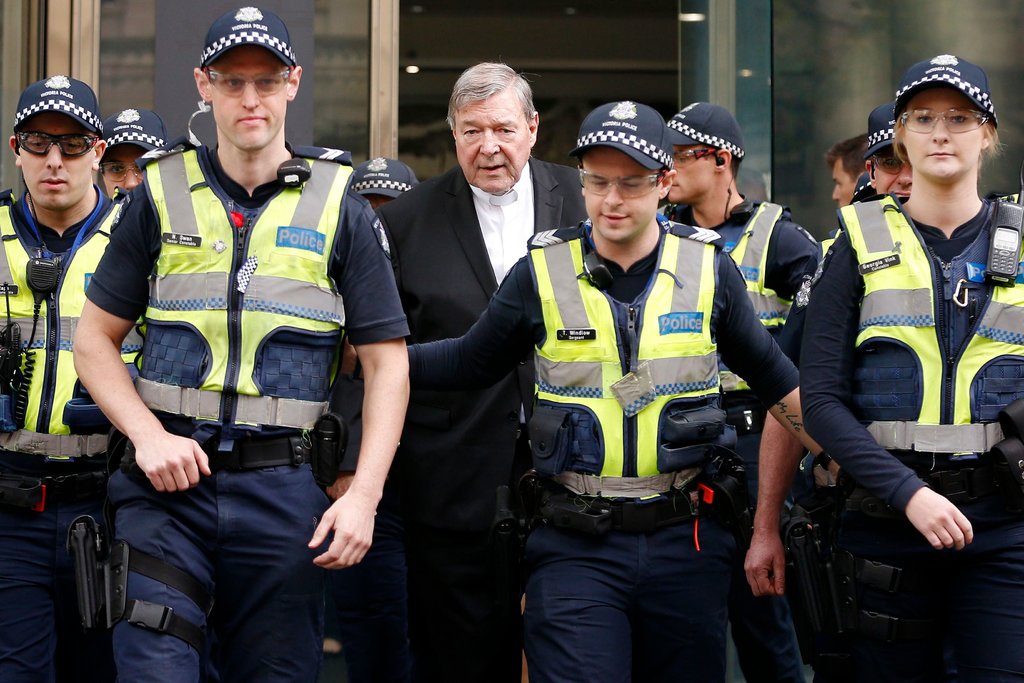Cardinal George Pell’s Sexual Abuse Trials May Be Held in Secret
By Damien Cave
An Australian court is to decide on Wednesday whether two planned trials for Cardinal George Pell, the senior Vatican official accused of sexual abuse, will be conducted in secret with the public barred from knowing what took place until the proceedings are over. On Friday, prosecutors in the state of Victoria applied for a “super injunction” against news coverage of the separate trials. Legal experts described the application as an extreme move aimed at keeping juries in both cases from learning anything that might cause bias. But a trial held behind closed doors would also limit accountability for the judge, jury and lawyers in the case. [Sign up for the Australia Letter to get news, conversation starters and local recommendations in your inbox each week.] “The proposed order is a blanket ban and is the most extreme form of order that can be made,” said Jason Bosland, deputy director of the Centre for Media and Communications Law at Melbourne Law School. Similar restrictions have already kept private the details and number of charges Cardinal Pell faces, but the proposed injunction would prohibit “any report of the whole or any part of these proceedings and any information derived from this proceeding and any court documents associated with this proceeding.” The injunction, if approved, would apply to “all states and territories of Australia and on any website or other electronic or broadcast format accessible within Australia.” Cardinal Pell is the highest ranking Catholic official to be charged with sexual abuse — technically “historical sexual offenses,” as defined by Australian law — and his case is being followed closely worldwide. He was a major figure in the Vatican for years, and served as Pope Francis’ finance chief, the third-highest-ranking official in the church. As recently as June, Cardinal Pell dined at a luxury restaurant with Scott Pruitt, the administrator of the Environmental Protection Agency, and discussed holding public debates that would challenge the established science on climate change. The charges landed a few weeks later. He returned to Australia and his home state of Victoria, where he served as a priest and bishop, and has vigorously denied the charges against him. Legal experts said public attention has become a weapon wielded by lawyers on both sides, with potential risks to each. The prosecutors’ request to bar news coverage appears aimed at heading off a possible attempt by Cardinal Pell’s lawyers to argue that unprecedented publicity would make it impossible for fair trials to occur — especially the second trial, which in theory, could be prejudiced by reporting on the first. In 2010, lawyers representing one of Australia’s most notorious serial killers, Peter Dupas, made a similar argument to Australia’s High Court, insisting that his trial over the murder of Mersina Halvagis should be dismissed because of previous publicity. That attempt failed. But Cardinal Pell’s profile may be even higher, given the decades in which he has had a prominent public role in Australia, and it is not clear whether the judge will side with privacy or transparency. Super injunctions have become increasingly common in Victoria courts, and the scope of the requested ban is as wide as possible, with the potential to shroud even innocuous information. News outlets, for example, may not even be able to report when or where the trial is happening, or even why that information cannot be shared. “It prevents publication of all details to do with the case, including the fact that proceedings are on foot and, indeed, that a suppression order has been issued,” Professor Bosland said. “You can’t even publish the judge’s name.”
|
.
Any original material on these pages is copyright © BishopAccountability.org 2004. Reproduce freely with attribution.
